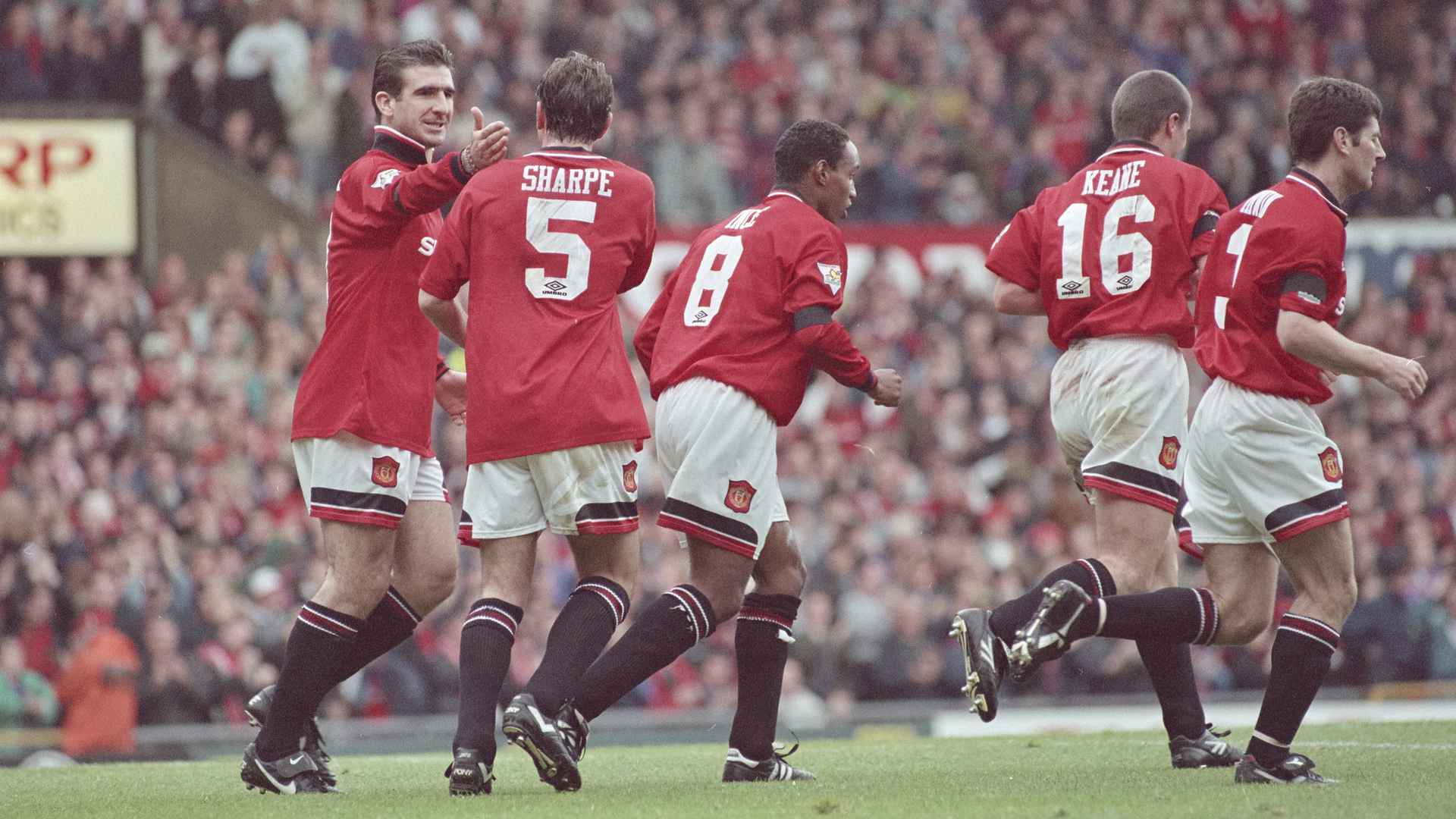99 00 premier league table – 99-00 Premier League table: The 1999-2000 Premier League season remains a captivating chapter in English football history. This season witnessed a thrilling title race, surprising upsets, and the rise of several key players who would go on to define the era. Analyzing the final standings reveals not only the victors but also the compelling narratives that unfolded throughout the campaign.
From pre-season predictions to the final whistle, we delve into the key storylines, managerial decisions, tactical battles, and pivotal moments that shaped the 99-00 season. We’ll examine the performances of title contenders Manchester United, Arsenal, and others, highlighting individual brilliance and tactical innovations. A detailed look at the final table, coupled with statistical analysis, provides a comprehensive overview of this memorable season.
The 1999-2000 Premier League Season: A Retrospective
The 1999-2000 Premier League season was a captivating campaign, marked by intense title battles, tactical innovations, and memorable individual performances. Manchester United, under the guidance of Sir Alex Ferguson, entered the season as the overwhelming favorites, aiming for a historic treble following their Champions League triumph. However, several other teams posed significant challenges, making it one of the most unpredictable and exciting seasons in recent memory.
Season Overview and Pre-Season Expectations
The pre-season narrative largely revolved around Manchester United’s potential to dominate once again. Their star-studded squad, bolstered by the continued brilliance of players like Ryan Giggs, Paul Scholes, and Dwight Yorke, made them the clear favorites. Arsenal, under Arsène Wenger, were expected to challenge, showcasing their stylish, possession-based football. Chelsea, under Gianluca Vialli, were also tipped for a strong finish, having made significant investments in their squad.
Liverpool, despite managerial changes, were seen as potential dark horses. The season’s key storyline centered on whether any team could dethrone the reigning champions.
Managerial Changes and Their Impact
The season witnessed several significant managerial changes. Liverpool’s appointment of Gérard Houllier, replacing Roy Evans, marked a pivotal moment. Houllier’s arrival brought a new tactical approach and team structure that ultimately improved their performance in the latter half of the season. Other managerial shifts, while less impactful on the title race, had noticeable consequences on their respective teams’ league positions.
Timeline of Key Events
A timeline of significant events highlights the season’s ebb and flow:
- August 1999: The season begins with Manchester United immediately asserting their dominance.
- October 1999: Arsenal and Chelsea begin to mount serious challenges to Manchester United’s supremacy.
- December 1999: A crucial match between Manchester United and Arsenal ends in a draw, highlighting the competitiveness of the title race.
- February 2000: Key injuries within several top teams begin to affect their form and league standings.
- March-April 2000: A series of close matches and unexpected results keep the title race wide open.
- May 2000: Manchester United secures the Premier League title in a dramatic final stretch of the season.
Analysis of the Final 1999-2000 Premier League Table
The final table showcased a fascinating narrative, contrasting pre-season predictions with the season’s actual outcomes. While Manchester United ultimately lived up to expectations, other teams’ performances deviated significantly from pre-season forecasts.
Final League Table
| Position | Team | Points | Goal Difference |
|---|---|---|---|
| 1 | Manchester United | 79 | +58 |
| 2 | Arsenal | 73 | +43 |
| 3 | Chelsea | 70 | +32 |
| 4 | Leeds United | 69 | +23 |
Performance of Top Three Teams
Manchester United’s success was built on their strong attacking force and a resilient defense. Arsenal’s possession-based approach yielded impressive results, but their occasional defensive vulnerabilities cost them crucial points. Chelsea’s consistent performance throughout the season demonstrated their strength in depth and managerial prowess.
Teams Exceeding/Underperforming Expectations
Teams like Leeds United significantly exceeded expectations, securing a Champions League spot. Conversely, certain teams underperformed due to factors like injuries, managerial changes, or tactical inconsistencies. A detailed analysis of individual team performances would reveal specific reasons for these discrepancies.
Key Players and Their Contributions
The 1999-2000 season featured several standout players who significantly impacted their teams’ fortunes. Analyzing their individual contributions reveals the key factors behind team success and failure.
Top Goalscorers and Assist Providers

A list of the league’s top goalscorers and assist providers would highlight the offensive prowess of key players. This would involve detailing the number of goals scored and assists made by each player and how this impacted their team’s position in the table.
Impact of Individual Players
Dwight Yorke’s partnership with Andy Cole in Manchester United’s attack was pivotal in their title win. Thierry Henry’s emergence at Arsenal showcased his potential as a future star. Gianfranco Zola’s creativity at Chelsea was instrumental in their strong campaign. Analyzing the statistics and performances of these and other key players would demonstrate their impact.
Player Profiles, 99 00 premier league table
Detailed profiles of three influential players, including their key statistics and overall impact on their team’s performance, would provide further insight into their individual contributions to the season’s narrative.
- Dwight Yorke (Manchester United): Yorke’s prolific goalscoring and link-up play with Andy Cole proved crucial to Manchester United’s title win. His statistics would be included here.
- Thierry Henry (Arsenal): Henry’s pace, skill, and eye for goal were a glimpse into his future dominance. His early impact on Arsenal would be highlighted with relevant statistics.
- Gianfranco Zola (Chelsea): Zola’s creative flair and ability to unlock defenses played a significant role in Chelsea’s impressive season. Statistics and analysis of his key contributions would be provided.
Tactical Approaches and Team Strategies
The 1999-2000 season showcased a variety of tactical approaches, with some teams favouring attacking formations while others prioritized defensive solidity. A comparison of these strategies provides valuable insight into the season’s tactical landscape.
Dominant Tactical Formations
Manchester United primarily utilized a 4-4-2 formation, emphasizing a balanced approach between attack and defense. Arsenal’s possession-based game often involved a 4-3-3 formation, focusing on controlling the midfield. Chelsea, under Vialli, employed a flexible system, adapting their approach based on opponents’ strengths and weaknesses. A deeper dive into these formations and their effectiveness would enrich the analysis.
Comparison of Tactical Styles
Comparing the tactical styles of the top contenders reveals their strengths and weaknesses. Manchester United’s direct approach contrasted with Arsenal’s more intricate, possession-oriented style. Chelsea’s adaptability made them a difficult opponent for various teams. This section would include a detailed comparison of their respective strengths and weaknesses.
Tactical Innovations
While no radical tactical innovations emerged, the successful implementation of existing formations and strategies by different teams showcases their adaptation and effectiveness. This section would focus on the strategic choices made by managers and how these impacted match results.
Memorable Matches and Moments: 99 00 Premier League Table
Several pivotal matches defined the 1999-2000 season, shaping the title race and leaving a lasting impact on the league’s narrative. Recounting these matches offers a compelling glimpse into the season’s dramatic moments.
Pivotal Matches

Three pivotal matches stand out: Manchester United’s victory against Arsenal at Old Trafford, a crucial win for Chelsea against a direct rival, and a surprise defeat for Manchester United against an underdog team. These matches are selected based on their impact on the final league standings.
Match Accounts
Each match will be described in detail, including the scoreline, key moments, and significant events. The analysis will focus on how these events impacted the title race and the overall league dynamics.
Memorable Moments
A short narrative summarizing the most memorable moments of the season would encapsulate the excitement and drama of the 1999-2000 Premier League campaign. This will include a concise summary of the most memorable individual performances and team achievements.
Finish your research with information from premier league 6th division.
Impact of Transfers and Injuries
Player transfers and injuries played significant roles in shaping the 1999-2000 season. Analyzing their impact provides a more comprehensive understanding of the final league standings.
Impact of Significant Transfers
Several key transfers influenced the performance of different teams. For example, the arrival of a key player to a mid-table team might have propelled them to a higher position, while the departure of a star player from a top team might have negatively impacted their performance. This section would provide specific examples of how transfers affected teams’ seasons.
Effects of Key Injuries
Key injuries within several top teams significantly impacted their form and league standings. The absence of a key player, for example, might have disrupted team dynamics and ultimately affected their final position. This section would provide examples of how injuries affected teams’ seasons.
Team Adaptations
Teams demonstrated varying degrees of success in adapting to player absences or new additions. Some teams seamlessly integrated new players, while others struggled to cope with key injuries. This section would provide examples of how teams adapted to these changes.
The 1999-2000 Premier League season stands as a testament to the unpredictable nature of football. While Manchester United ultimately claimed the title, the season was filled with dramatic twists and turns, showcasing the competitive intensity of the league. Re-examining this era through the lens of the final table illuminates not only the winners but also the compelling stories of those who challenged for glory and those who defied expectations.
It serves as a reminder of the captivating narratives that unfold each season in the Premier League.



